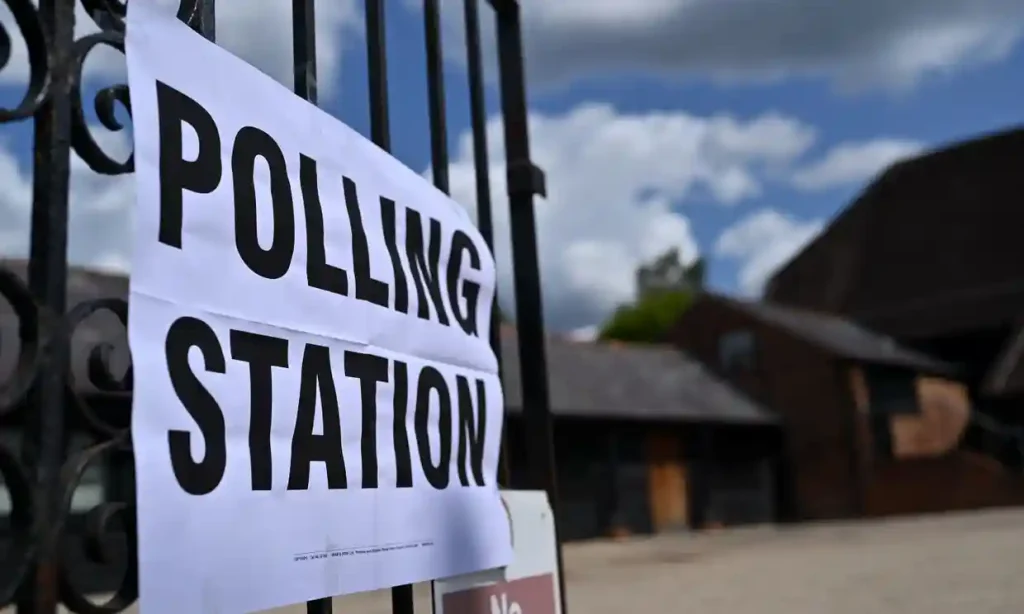Rishi Sunak is being urged by senior Conservatives to go for a spring election next year, with the plan said to be “gaining traction” among campaign strategists who believe it may be their best chance to stem losses.
In the aftermath of Thursday’s byelections, which saw a 21-point average swing against the Tories, some party insiders suggested May 2024 could be an “economic sweet spot” – providing the best window for “damage limitation”.
Sunak has come under pressure since the defeats in North Yorkshire and Somerset this week, despite the Tories pulling off a narrow win in Boris Johnson’s former seat in west London.
The 19,000 and 20,000 majorities that were overturned by Labour and the Liberal Democrats have also renewed jitters among Tory MPs about the safety of their own seat.
With talk of a planned cabinet reshuffle towards the end of the summer and pressure on Sunak growing to buoy his party up at its conference in October, attention is turning among a select few in No 10 to the timing of the next election.
“Rishi will take a stronger view once we get to next January – when the economic picture is clearer and the new cabinet have had time to bed in,” said one senior Tory source. “But the case for an early election is gaining traction.”
Dan Poulter, the Conservative MP for Central Suffolk and North Ipswich, told Times Radio on Sunday: “If we look at historical precedents, at the moment it would suggest that – unless things change and turn around – we’re probably heading for a change of government in 15, 18 months’ time.” He added there was a “slim” chance of victory, but conceded the government was in a “very difficult place”.
The idea has been advanced by those including Daniel Finkelstein, a Conservative peer and adviser to John Major in the run up to the party’s crushing defeat in 1997, as well as other figures in parliament and Conservative Central Headquarters.
Tory strategists point to inflation falling faster than expected – to 7.9% from 8.7% – and hopes that Sunak’s aim to halve inflation will be reached, if not by the end of the year, then in early 2024.
“There’s an economic sweep spot,” said one insider. They suggested there would probably be a period next spring where inflation comes under control but before a potential recession and the full effect of further interest rate rises has been felt.
Such a move would allow the chancellor, Jeremy Hunt, to store up some intended measures and announce these at the spring budget, in March 2024.
The possible giveaways – reported to include abolishing inheritance tax – would be a pre-electoral springboard and challenge for Starmer to match, given his repeated warning that Labour’s ambitions will have to be limited to the finances they inherit.
Further advantages to an early election are reducing the potential punishment levied on the Conservative government for rising mortgage payments. Those who have been shielded from the effects of interest rates due to being on relatively low fixed-rate mortgages are gradually seeing their deals expire.
“Every person who ends up paying an extra £500 a month because they’ve come off their mortgage deal between the spring and the autumn will end up blaming us,” said one MP. “The quicker we get out the way with a damage limitation early election, the quicker we can be back in power after a spell as the opposition.”
Others have pointed to forthcoming fixtures in the political calendar. They fear a narrative-defining drubbing in the May 2024 local elections; followed by another summer where the unresolved small boats issue goes unresolved; and then, as the colder months approach, warnings of an impending winter crisis in the NHS.
Views differ about when the election, which has to happen by January 2025, is most likely to take place. Some who want Sunak to go later point to the risk of the economy not having recovered enough by next May. They also suggest Sunak may want to make as much headway as possible in clearing the NHS backlog given the difficulties posed by strikes – making a November election more preferable.


